#david f friedman
Text

"Hey there, jameela, which way to the gift shop?"
#trader hornee#jonathan lucas#david f friedman#deek sills#buddy pantsari#jungle girl#jungle queen#1970
15 notes
·
View notes
Text
NSFW Alphabet - David Friedman

Time for our favourite scruffy southern detective ;)
A = Aftercare (what they’re like after sex)
He likes to cuddle. Leant up a bit against the headboard with you snuggled up against his side with your head on his chest and his arms around you.
B = Body part (their favorite body part of theirs and also their partner’s)
He wouldn't say he particularly likes any part of his body. Only time he really considers his own body is when he notices how much various places ache from his job taking its toll.
On you, it's your legs. It was the one of the first things he noticed about you and your legs have been a turn on for him ever since.
C = Cum (anything to do with cum, basically)
Prefers inside you.
D = Dirty secret (pretty self explanatory, a dirty secret of theirs)
This one's a dirty secret you share. No one can ever find out you and David once had sex in an interrogation room at the precinct.
E = Experience (how experienced are they? do they know what they’re doing?)
He's had a few partners, and he was married. He's experienced enough to know what he likes and how to please you.
F = Favorite position (this goes without saying)
Chair sex, with you straddling his lap. That way he can touch as much of you as he wants and have you nice and close.
G = Goofy (are they more serious in the moment? are they humorous? etc.)
He's not overtly goofy or anything. He has a dry humour that surface at times, especially if you two are getting a bit creative and hurried.
H = Hair (how well groomed are they? does the carpet match the drapes? etc.)
Shaving his face and combing his hair is about as much as he fusses with personal grooming, never mind anything else.
I = Intimacy (how are they during the moment? the romantic aspect)
He’s a rough edges with a soft centre kind of guy. He may not be romantic with words but in his actions, things like the way he looks at you, how he strokes your hair and brushes his fingers down the side of your face. Moments like that feel very intimate and romantic.
J = Jack off (masturbation headcanon)
You can't always be together, but you're good at phone sex. You love listening to the sound of him pleasuring himself.
K = Kink (one or more of their kinks)
He likes handcuffing you to the bed. Sometimes he'll let you put the cuffs on him. Like the time you cuffed him to a chair so he couldn't touch you while you gave him a lap dance.
Satin and lace. The world he spends most of his time in is hard, bitter and ugly and he likes when he can distance himself from it. Part of that is he likes seeing his lover wrapped up in something soft, silky and pretty like lace lingerie or a satin nightgown.
L = Location (favorite places to do the do)
Pretty much anywhere at home. And the back seat of his car.
M = Motivation (what turns them on, gets them going)
When you wear tight pencil skirts and heels. He loves the way it makes your ass and legs look.
When you pull him in by his tie to kiss him.
Sass. Whether it’s aimed at him or someone else, he loves when you bust out the sassiness.
N = No (something they wouldn’t do, turn offs)
No knife or gun play.
O = Oral (preference in giving or receiving, skill, etc.)
He prefers to receive, but he will go down on you if you want him too. Not that he doesn't like it, he just thinks he's more skilled with his hands.
P = Pace (are they fast and rough? slow and sensual? etc.)
Kind of in the middle. He likes to take his time before he goes hard.
Q = Quickie (their opinions on quickies, how often, etc.)
Sometimes you have to take advantage of time and/or place. A favourite is before work or if you can both get away during a lunch break or something.
R = Risk (are they game to experiment? do they take risks? etc.)
He's pretty happy with how things are, but if something gets him or you curious, he's usually willing to try it.
S = Stamina (how many rounds can they go for? how long do they last?)
Twice. He lasts a decent amount of time, and he's thorough on the foreplay.
T = Toys (do they own toys? do they use them? on a partner or themselves?)
Nothing that he'd gotten himself. But he did find the vibrator you had from before you got together and asked you to use it while he watched.
U = Unfair (how much they like to tease)
He'd say he's not trying to tease, he's just enjoying himself. But the effect on you is the same.
V = Volume (how loud they are, what sounds they make, etc.)
Mid-range. Grunts and gasps.
W = Wild card (a random headcanon for the character)
David’s job has him seeing the worst sides of humanity almost every day. He’s built up a hard shell, but it does still get to him, it hurts him, makes him angry and scared. He’s trying not to drown his feelings in a bottle so much. Instead he’ll bury himself inside you. Holding you tight, skin to skin, breath in your scent, brings him a feeling of peace and safety like nothing else.
X = X-ray (let’s see what’s going on under those clothes)
Average length but thick.
Y = Yearning (how high is their sex drive?)
Pretty high. A combination of love for you, personal tension and wanting to make up for the times he's not there, you have a lot of sex.
Z = Zzz (how quickly they fall asleep afterwards)
He’s got a bit of insomnia, so it usually takes him a while to fall asleep. Having you tucked up against him helps and listening to you breath and feeling your heartbeat helps lull him enough to sleep.
#alan rickman#n s f w alphabet#david friedman#judas kiss#please don't repost my work#reblog yes though#judas kiss 1988
64 notes
·
View notes
Text

A Far Out Trip Thru a Hard Rock Tunnel
54 notes
·
View notes
Photo
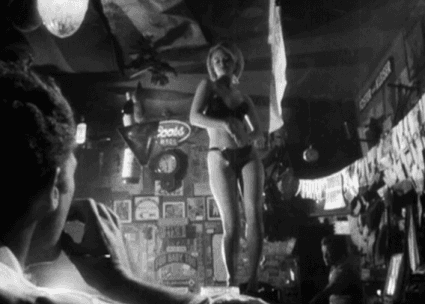
TGIF
#stacey walker gif#dancing girl gif#tgif gif#a smell of honey a swallow of brine#60s movies#60s sexploitation#david f. friedman#grindhouse#friday#sixties#1966#gif#chronoscaph gif
864 notes
·
View notes
Text

#something weird video#someting weird#gif#distributor#vhs#vcr#vintage#retro#60's#70's#80's#90's#weird#strange#psychadelic#film#Herschell Gordon Lewis#David F. Friedman#Harry Novak#Doris Wishman#misc
40 notes
·
View notes
Text



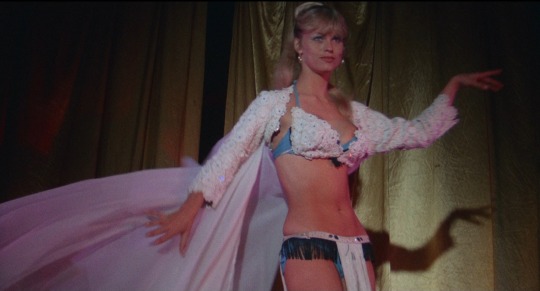
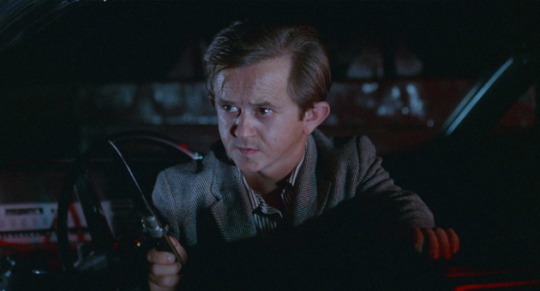





She Freak (1967)
"There are only two kinds of freaks, ladies and gentlemen: those created by God and those made by men. I guess both of them had a hand in what you see here."
#she freak#american cinema#exploitation film#asylum of the insane#1967#david f. friedman#byron mabe#donn davison#claire brennen#lee raymond#lynn courtney#bill mckinney#claude earl jones#ben moore#vanteen#madame lee#marsha drake#felix silla#william bagdad#sandra holcomb#william allen castleman#cheap schlock unofficial remake of Tod Browning's Freaks for the gaudy technicolor 60s#it certainly looks quite striking and has a pleasantly vibrant aesthetic to its scenes of carnival hijinks and melodramatic affairs#but the film spends most of its run time on the day to day of carnie life and on star Brennen's journey from diner waitress to femme fatale#and wicked queen of the carnivals misfits (god forbid a woman have ambition 😏) and the actual horror element appears only in the final 5#mins. theyre 5 good mins! but i wish the film had found a little of that energy earlier in its run bc this is something of a slog tbh#a different director shot inserts and this was rereleased as Asylum of the Insane but those inserts were a special feature on the disc i#watched and somehow they achieve the impossible by being more dull than the og film.#a bit of a meh watch but it does look intermittently groovy
24 notes
·
View notes
Text



currently watching That's Sexploitation! (2013) featuring David F. Friedman and Frank Henenlotter

youtube
3 notes
·
View notes
Text
youtube
You like movies about making movies? Producer extraordinaire, David F. Friedman, brings you the opposite of gore! A beautiful Vinegar Syndrome release...
0 notes
Text
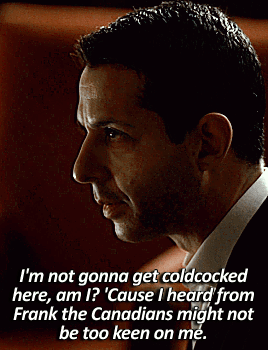

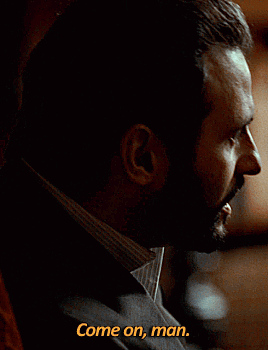
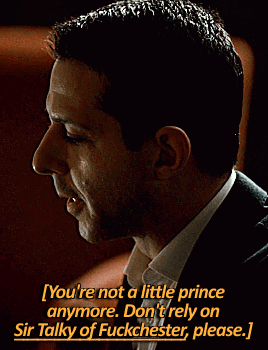




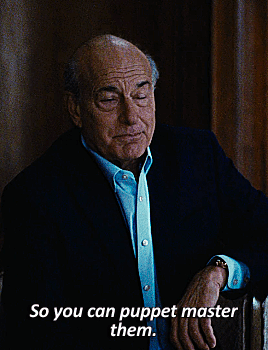
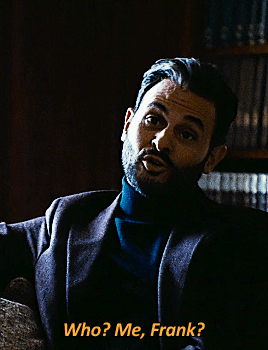

SUCCESSION (2018-2023)
1.09 | 4.04
I remember when we were shooting that scene, it's not in the edit, but when I was looking at Frank and Karl, played by the amazing Peter Friedman and David Rasche, when I said, "A few times," the two of them looked at each other every take and they rolled their eyes. Every time they did it, it was so beautiful, because they know "a few times" is so f---ing vague, but they also know that I'm right. They don't f---ing believe Stewy, so rage was coming. When it comes to, "Who me, Frank?" it was a pinpoint. I f---ing hate you. I think Stewy hates Frank.
#succession#successionedit#succession spoilers#stewy hosseini#arian moayed#frank vernon#peter friedman#kenstewy#kenstew#kendall roy#beegifs
2K notes
·
View notes
Text

Dodge the zombie, dig the quicksand
Duck the burning village eyes
'Til the sun lies dying then
Spank that tom-tom til it cries
10 notes
·
View notes
Text

F.6.3 But surely market forces will stop abuses by the rich?
Unlikely. The rise of corporations within America indicates exactly how a “general libertarian law code” would reflect the interests of the rich and powerful. The laws recognising corporations as “legal persons” were not primarily a product of “the state” but of private lawyers hired by the rich. As Howard Zinn notes:
“the American Bar Association, organised by lawyers accustomed to serving the wealthy, began a national campaign of education to reverse the [Supreme] Court decision [that companies could not be considered as a person]… . By 1886, they succeeded … the Supreme Court had accepted the argument that corporations were ‘persons’ and their money was property protected by the process clause of the Fourteenth Amendment … The justices of the Supreme Court were not simply interpreters of the Constitution. They were men of certain backgrounds, of certain [class] interests.” [A People’s History of the United States, p. 255]
Of course it will be argued that the Supreme Court is chosen by the government and is a state enforced monopoly and so our analysis is flawed. Yet this is not the case. As Rothbard made clear, the “general libertarian law code” would be created by lawyers and jurists and everyone would be expected to obey it. Why expect these lawyers and jurists to be any less class conscious then those in the 19th century? If the Supreme Court “was doing its bit for the ruling elite” then why would those creating the law system be any different? “How could it be neutral between rich and poor,” argues Zinn, “when its members were often former wealthy lawyers, and almost always came from the upper class?” [Op. Cit., p. 254] Moreover, the corporate laws came about because there was a demand for them. That demand would still have existed in “anarcho”-capitalism. Now, while there may nor be a Supreme Court, Rothbard does maintain that “the basic Law Code … would have to be agreed upon by all the judicial agencies” but he maintains that this “would imply no unified legal system”! Even though ”[a]ny agencies that transgressed the basic libertarian law code would be open outlaws” and soon crushed this is not, apparently, a monopoly. [The Ethics of Liberty, p. 234] So, you either agree to the law code or you go out of business. And that is not a monopoly! Therefore, we think, our comments on the Supreme Court are valid (see also section F.7.2).
If all the available defence firms enforce the same laws, then it can hardly be called “competitive”! And if this is the case (and it is) “when private wealth is uncontrolled, then a police-judicial complex enjoying a clientele of wealthy corporations whose motto is self-interest is hardly an innocuous social force controllable by the possibility of forming or affiliating with competing ‘companies.’” [Wieck, Op. Cit., p. 225] This is particularly true if these companies are themselves Big Business and so have a large impact on the laws they are enforcing. If the law code recognises and protects capitalist power, property and wealth as fundamental any attempt to change this is “initiation of force” and so the power of the rich is written into the system from the start!
(And, we must add, if there is a general libertarian law code to which all must subscribe, where does that put customer demand? If people demand a non-libertarian law code, will defence firms refuse to supply it? If so, will not new firms, looking for profit, spring up that will supply what is being demanded? And will that not put them in direct conflict with the existing, pro-general law code ones? And will a market in law codes not just reflect economic power and wealth? David Friedman, who is for a market in law codes, argues that ”[i]f almost everyone believes strongly that heroin addiction is so horrible that it should not be permitted anywhere under any circumstances anarcho-capitalist institutions will produce laws against heroin. Laws are being produced on the market, and that is what the market wants.” And he adds that “market demands are in dollars, not votes. The legality of heroin will be determined, not by how many are for or against but how high a cost each side is willing to bear in order to get its way.” [The Machinery of Freedom, p. 127] And, as the market is less than equal in terms of income and wealth, such a position will mean that the capitalist class will have a higher effective demand than the working class and more resources to pay for any conflicts that arise. Thus any law codes that develop will tend to reflect the interests of the wealthy.)
Which brings us nicely on to the next problem regarding market forces.
As well as the obvious influence of economic interests and differences in wealth, another problem faces the “free market” justice of “anarcho”-capitalism. This is the “general libertarian law code” itself. Even if we assume that the system actually works like it should in theory, the simple fact remains that these “defence companies” are enforcing laws which explicitly defend capitalist property (and so social relations). Capitalists own the means of production upon which they hire wage-labourers to work and this is an inequality established prior to any specific transaction in the labour market. This inequality reflects itself in terms of differences in power within (and outside) the company and in the “law code” of “anarcho”-capitalism which protects that power against the dispossessed.
In other words, the law code within which the defence companies work assumes that capitalist property is legitimate and that force can legitimately be used to defend it. This means that, in effect, “anarcho”-capitalism is based on a monopoly of law, a monopoly which explicitly exists to defend the power and capital of the wealthy. The major difference is that the agencies used to protect that wealth will be in a weaker position to act independently of their pay-masters. Unlike the state, the “defence” firm is not remotely accountable to the general population and cannot be used to equalise even slightly the power relationships between worker and capitalist (as the state has, on occasion done, due to public pressure and to preserve the system as a whole). And, needless to say, it is very likely that the private police forces will give preferential treatment to their wealthier customers (which business does not?) and that the law code will reflect the interests of the wealthier sectors of society (particularly if prosperous judges administer that code) in reality, even if not in theory. Since, in capitalist practice, “the customer is always right,” the best-paying customers will get their way in “anarcho”-capitalist society.
For example, in chapter 29 of The Machinery of Freedom, David Friedman presents an example of how a clash of different law codes could be resolved by a bargaining process (the law in question is the death penalty). This process would involve one defence firm giving a sum of money to the other for them accepting the appropriate (anti/pro capital punishment) court. Friedman claims that ”[a]s in any good trade, everyone gains” but this is obviously not true. Assuming the anti-capital punishment defence firm pays the pro one to accept an anti-capital punishment court, then, yes, both defence firms have made money and so are happy, so are the anti-capital punishment consumers but the pro-death penalty customers have only (perhaps) received a cut in their bills. Their desire to see criminals hanged (for whatever reason) has been ignored (if they were not in favour of the death penalty, they would not have subscribed to that company). Friedman claims that the deal, by allowing the anti-death penalty firm to cut its costs, will ensure that it “keep its customers and even get more” but this is just an assumption. It is just as likely to loose customers to a defence firm that refuses to compromise (and has the resources to back it up). Friedman’s assumption that lower costs will automatically win over people’s passions is unfounded as is the assumption that both firms have equal resources and bargaining power. If the pro-capital punishment firm demands more than the anti can provide and has larger weaponry and troops, then the anti defence firm may have to agree to let the pro one have its way. So, all in all, it is not clear that “everyone gains” — there may be a sizeable percentage of those involved who do not “gain” as their desire for capital punishment is traded away by those who claimed they would enforce it. This may, in turn, produce a demand for defence firms which do not compromise with obvious implications for public peace.
In other words, a system of competing law codes and privatised rights does not ensure that all individual interests are meet. Given unequal resources within society, it is clear that the “effective demand” of the parties involved to see their law codes enforced is drastically different. The wealthy head of a transnational corporation will have far more resources available to him to pay for his laws to be enforced than one of his employees on the assembly line. Moreover, as we noted in section F.3.1, the labour market is usually skewed in favour of capitalists. This means that workers have to compromise to get work and such compromises may involve agreeing to join a specific “defence” firm or not join one at all (just as workers are often forced to sign non-union contracts today in order to get work). In other words, a privatised law system is very likely to skew the enforcement of laws in line with the skewing of income and wealth in society. At the very least, unlike every other market, the customer is not guaranteed to get exactly what they demand simply because the product they “consume” is dependent on others within the same market to ensure its supply. The unique workings of the law/defence market are such as to deny customer choice (we will discuss other aspects of this unique market shortly). Wieck summed by pointing out the obvious:
“any judicial system is going to exist in the context of economic institutions. If there are gross inequalities of power in the economic and social domains, one has to imagine society as strangely compartmentalised in order to believe that those inequalities will fail to reflect themselves in the judicial and legal domain, and that the economically powerful will be unable to manipulate the legal and judicial system to their advantage. To abstract from such influences of context, and then consider the merits of an abstract judicial system.. . is to follow a method that is not likely to take us far. This, by the way, is a criticism that applies…to any theory that relies on a rule of law to override the tendencies inherent in a given social and economic system” [Op. Cit., p. 225]
There is another reason why “market forces” will not stop abuse by the rich, or indeed stop the system from turning from private to public statism. This is due to the nature of the “defence” market (for a similar analysis of the “defence” market see right-“libertarian” economist Tyler Cowen’s “Law as a Public Good: The Economics of Anarchy” [Economics and Philosophy, no. 8 (1992), pp. 249–267] and “Rejoinder to David Friedman on the Economics of Anarchy” [Economics and Philosophy, no. 10 (1994), pp. 329–332]). In “anarcho”-capitalist theory it is assumed that the competing “defence companies” have a vested interest in peacefully settling differences between themselves by means of arbitration. In order to be competitive on the market, companies will have to co-operate via contractual relations otherwise the higher price associated with conflict will make the company uncompetitive and it will go under. Those companies that ignore decisions made in arbitration would be outlawed by others, ostracised and their rulings ignored. By this process, it is argued, a system of competing “defence” companies will be stable and not turn into a civil war between agencies with each enforcing the interests of their clients against others by force.
However, there is a catch. Unlike every other market, the businesses in competition in the “defence” industry must co-operate with its fellows in order to provide its services for its customers. They need to be able to agree to courts and judges, agree to abide by decisions and law codes and so forth. In economics there are other, more accurate, terms to describe co-operative activity between companies: collusion and cartels. These are when companies in a specific market agree to work together (co-operate) to restrict competition and reap the benefits of monopoly power by working to achieve the same ends in partnership with each other. By stressing the co-operative nature of the “defence” market, “anarcho”-capitalists are implicitly acknowledging that collusion is built into the system. The necessary contractual relations between agencies in the “protection” market require that firms co-operate and, by so doing, to behave (effectively) as one large firm (and so resemble a normal state even more than they already do). Quoting Adam Smith seems appropriate here: “People of the same trade seldom meet together, even for merriment and diversion, but the conversation ends in a conspiracy against the public, or in some contrivance to raise prices.” [The Wealth of Nations, p. 117] Having a market based on people of the same trade co-operating seems, therefore, an unwise move.
For example, when buying food it does not matter whether the supermarkets visited have good relations with each other. The goods bought are independent of the relationships that exist between competing companies. However, in the case of private states this is not the case. If a specific “defence” company has bad relationships with other companies in the market then it is against a customer’s self-interest to subscribe to it. Why subscribe to a private state if its judgements are ignored by the others and it has to resort to violence to be heard? This, as well as being potentially dangerous, will also push up the prices that have to be paid. Arbitration is one of the most important services a defence firm can offer its customers and its market share is based upon being able to settle interagency disputes without risk of war or uncertainty that the final outcome will not be accepted by all parties. Lose that and a company will lose market share.
Therefore, the market set-up within the “anarcho”-capitalist “defence” market is such that private states have to co-operate with the others (or go out of business fast) and this means collusion can take place. In other words, a system of private states will have to agree to work together in order to provide the service of “law enforcement” to their customers and the result of such co-operation is to create a cartel. However, unlike cartels in other industries, the “defence” cartel will be a stable body simply because its members have to work with their competitors in order to survive.
Let us look at what would happen after such a cartel is formed in a specific area and a new “defence company” desired to enter the market. This new company will have to work with the members of the cartel in order to provide its services to its customers (note that “anarcho”-capitalists already assume that they “will have to” subscribe to the same law code). If the new defence firm tries to under-cut the cartel’s monopoly prices, the other companies would refuse to work with it. Having to face constant conflict or the possibility of conflict, seeing its decisions being ignored by other agencies and being uncertain what the results of a dispute would be, few would patronise the new “defence company.” The new company’s prices would go up and it would soon face either folding or joining the cartel. Unlike every other market, if a “defence company” does not have friendly, co-operative relations with other firms in the same industry then it will go out of business.
This means that the firms that are co-operating have simply to agree not to deal with new firms which are attempting to undermine the cartel in order for them to fail. A “cartel busting” firm goes out of business in the same way an outlaw one does — the higher costs associated with having to solve all its conflicts by force, not arbitration, increases its production costs much higher than the competitors and the firm faces insurmountable difficulties selling its products at a profit (ignoring any drop of demand due to fears of conflict by actual and potential customers). Even if we assume that many people will happily join the new firm in spite of the dangers to protect themselves against the cartel and its taxation (i.e. monopoly profits), enough will remain members of the cartel so that co-operation will still be needed and conflict unprofitable and dangerous (and as the cartel will have more resources than the new firm, it could usually hold out longer than the new firm could). In effect, breaking the cartel may take the form of an armed revolution — as it would with any state.
The forces that break up cartels and monopolies in other industries (such as free entry — although, of course the “defence” market will be subject to oligopolistic tendencies as any other and this will create barriers to entry) do not work here and so new firms have to co-operate or loose market share and/or profits. This means that “defence companies” will reap monopoly profits and, more importantly, have a monopoly of force over a given area.
It is also likely that a multitude of cartels would develop, with a given cartel operating in a given locality. This is because law enforcement would be localised in given areas as most crime occurs where the criminal lives (few criminals would live in Glasgow and commit crimes in Paris). However, as defence companies have to co-operate to provide their services, so would the cartels. Few people live all their lives in one area and so firms from different cartels would come into contact, so forming a cartel of cartels. This cartel of cartels may (perhaps) be less powerful than a local cartel, but it would still be required and for exactly the same reasons a local one is. Therefore “anarcho”-capitalism would, like “actually existing capitalism,” be marked by a series of public states covering given areas, co-ordinated by larger states at higher levels. Such a set up would parallel the United States in many ways except it would be run directly by wealthy shareholders without the sham of “democratic” elections. Moreover, as in the USA and other states there will still be a monopoly of rules and laws (the “general libertarian law code”).
Hence a monopoly of private states will develop in addition to the existing monopoly of law and this is a de facto monopoly of force over a given area (i.e. some kind of public state run by share holders). New companies attempting to enter the “defence” industry will have to work with the existing cartel in order to provide the services it offers to its customers. The cartel is in a dominant position and new entries into the market either become part of it or fail. This is exactly the position with the state, with “private agencies” free to operate as long as they work to the state’s guidelines. As with the monopolist “general libertarian law code”, if you do not toe the line, you go out of business fast.
“Anarcho”-capitalists claim that this will not occur, but that the co-operation needed to provide the service of law enforcement will somehow not turn into collusion between companies. However, they are quick to argue that renegade “agencies” (for example, the so-called “Mafia problem” or those who reject judgements) will go out of business because of the higher costs associated with conflict and not arbitration. Yet these higher costs are ensured because the firms in question do not co-operate with others. If other agencies boycott a firm but co-operate with all the others, then the boycotted firm will be at the same disadvantage — regardless of whether it is a cartel buster or a renegade. So the “anarcho”-capitalist is trying to have it both ways. If the punishment of non-conforming firms cannot occur, then “anarcho”-capitalism will turn into a war of all against all or, at the very least, the service of social peace and law enforcement cannot be provided. If firms cannot deter others from disrupting the social peace (one service the firm provides) then “anarcho”-capitalism is not stable and will not remain orderly as agencies develop which favour the interests of their own customers and enforce their own law codes at the expense of others. If collusion cannot occur (or is too costly) then neither can the punishment of non-conforming firms and “anarcho”-capitalism will prove to be unstable.
So, to sum up, the “defence” market of private states has powerful forces within it to turn it into a monopoly of force over a given area. From a privately chosen monopoly of force over a specific (privately owned) area, the market of private states will turn into a monopoly of force over a general area. This is due to the need for peaceful relations between companies, relations which are required for a firm to secure market share. The unique market forces that exist within this market ensure collusion and the system of private states will become a cartel and so a public state — unaccountable to all but its shareholders, a state of the wealthy, by the wealthy, for the wealthy.
#faq#anarchy faq#revolution#anarchism#daily posts#communism#anti capitalist#anti capitalism#late stage capitalism#organization#grassroots#grass roots#anarchists#libraries#leftism#social issues#economy#economics#climate change#climate crisis#climate#ecology#anarchy works#environmentalism#environment#solarpunk#anti colonialism#mutual aid#cops#police
14 notes
·
View notes
Text
A former Trump-era adviser to the U.S. ambassador to Israel is calling on Michigan Gov. Gretchen Whitmer to resign after she "embarrassed herself" while responding to the terrorist attacks on Israel.
In an early morning post to social media on Sunday, Aryeh Lightstone, who served as a senior adviser to former U.S. Ambassador to Israel David Friedman from 2017 to 2021, took aim at Whitmer for her comments following the Iranian-backed Hamas terrorist attacks on Israel.
"I have been in touch with communities impacted by what’s happening in the region. It is abhorrent. My heart is with all those impacted. We need peace in this region," Whitmer wrote on X, with no mention of Israel.
"I hosted you for Thanksgiving in Israel just a few years ago. I am embarrassed for you and by you & disappointed that I opened my home and my family to you," Lightstone responded to Whitmer.
GOV. WHITMER ROASTED OVER SLOW, 'GOBBLEDEGOOK' RESPONSE TO HAMAS ATTACKS ON ISRAEL: 'SAY THEIR NAMES'
Elaborating on his comments, Lightstone — who's in Israel witnessing the conflict as it unfolds — told Fox News Digital he was shocked by the "fraudulent nature" of Whitmer's response.
"The job of a leader is to know the difference between right and wrong. The job of a politician is apparently to say nothing, and she demonstrated that she's a politician," he said.
"She watched this happen in real time. And to watch women and children be kidnapped and raped and murdered, and to not be able to say something? She should resign immediately," Lightstone said of Whitmer.
Lightstone said he hosted Whitmer, her husband, and 25 other Michigan residents at his home in Israel for a Thanksgiving meal in 2019, when the governor had the opportunity to witness first-hand the ongoing conflict taking place in the country.
"She was in Israel. She saw what happened. She went to the border. She saw the people," he said. "I'm a Republican… but she wanted a place for Thanksgiving and every American should have a place to go for Thanksgiving. So I welcomed her into my home and I invited 25 Michiganders at my expense to host them."
Lightstone said he and the governor spoke about the U.S.-Israel relationship and ways to strengthen it.
Following the pushback she received from the tweet, Whitmer made another post on Saturday in which she included Israel's name.
"The images that continue to come out of Israel on the anniversary of the Yom Kippur War are devastating. The loss of lives in Israel –children and families – is absolutely heartbreaking and appalling," the governor said in her follow-up post on X. "There is no justification for violence against Israel. My support is steadfast."
Asked about Whitmer's follow-up tweet, Lightstone said he believes she only shared it because she was "embarrassed for herself."
"There's only two sides of this. There's a right side and a wrong side. She chose the wrong side," he said. "I don't think she's a bad person. I just think she's a politician."
Whitmer's office did not immediately respond to Fox News Digital's request for comment.
During his conversation with Fox, Lightstone also underscored his work to strengthen the U.S.-Israel relationship while serving with Friedman. Specifically, he touted the Abraham Accords, which were negotiated by the Trump administration and first signed in 2020. The agreements secured diplomatic relations between four Muslim-majority countries with Israel, including the United Arab Emirates, Bahrain, Morocco and Sudan.
"Israel is resilient, Israel is strong, but Israel is going through the worst day in its history. Saying anything short of that is mischaracterizing the day. It's the worst day in Israel's history," Lightstone said.
"Israel has never asked for and never will ask for a single American troop on the ground here," he added, highlighting the need for other means of support for Israel. "Every one of these people chanting 'death to Israel' finishes the sentence with 'death to America.'"
Lightstone also attempted to throw cold water on reports that suggested Israel was not united in its efforts to combat terrorists in the region.
"It was reported that in the last nine months that Israel is deeply divided. Israel is not deeply divided. Israel is fully and totally united," he said. "The people of the United States of America, I believe, strongly love Israel."
He also noted that there "can be no whataboutism" about the situation taking place in Israel.
"There is no parallel. This is not a competition between two sides that both have merit. One is a side of animals and the other is the side of democracy. This is the clearest distinction I've seen in my life since 9/11," he said.
4 notes
·
View notes
Text
To Be Read July 2023
The Mind
The Molecule of More: How a Single Chemical in Your Brain Drives Love, Sex, and Creativity―and Will Determine the Fate of the Human Race by Daniel Z. Lieberman & Michael E. Long
The Brain: A Very Short Introduction by Michael O'Shea
Consciousness: A Very Short Introduction by Susan Blackmore
The Mind-Gut Connection: How the Hidden Conversation Within Our Bodies Impacts Our Mood, Our Choices, and Our Overall Health by Emeran Mayer MD
Trick Mirror: Reflections on Self-Delusion by Jia Tolentino
Sensitive is the New Strong: The Power of Empaths in an Increasingly Harsh World by Anita Moorjani
The Highly Sensitive Person by Elaine Aron
Laziness Does Not Exist by Devon Price Ph.D.
Wired to Create: Unraveling the Mysteries of the Creative Mind by Scott Barry Kaufman & Carolyn Gregoire
The Body Keeps the Score: Brain, Mind, and Body in the Healing of Trauma by Bessel A. van der Kolk
Music & The Mind (Art Philosophy, Aesthetics, Neuroaesthetics)
Saved by a Song: The Art and Healing Power of Songwriting by Mary Gauthier
The Song Machine: Inside the Hit Factory by John Seabrook
This is What it Sounds Like: What the Music You Love Says About You by Ogi Ogas & Susan Rogers
Why You Like It: The Science and Culture of Musical Taste by Nolan Gasser
The Story of Music: From Babylon to the Beatles: How Music Has Shaped Civilization by Howard Goodall
Of Sound Mind: How Our Brain Constructs a Meaningful Sonic World by Nina Kraus
Aesthetics: A Very Short Introduction by Bence Nanay
Equipment for Living: On Poetry and Pop Music by Michael Robbins
How Music Works by David Byrne
General Non-Fiction / History / Science
The Russian Revolution: A Very Short Introduction by S. A. Smith
The French Revolution: A Very Short Introduction by William Doyle
Linguistics: A Very Short Introduction by P. H. Matthews
Mathematics: A Very Short Introduction by Timothy Gowers
After the End of Art: Contemporary Art and the Pale of History by Arthur C. Danto
Flappers by Judith Mackrell
Marketing for Dummies, 6th edition by Jeanette McMurty MBA
Sinatra: The Chairman by James Kaplan
Get Happy: The Life of Judy Garland by Gerald Clarke
Self-Improvement
Self-Compassion: The Proven Power of Being Kind to Yourself by Dr. Kristin Neff
Self Compassion for Dummies by by Steven Hickman PsyD (in progress)
The Nice Girl Syndrome: Stop Being Manipulated and Abused -- and Start Standing Up for Yourself by Beverly Engel
The Assertiveness Guide for Women: How to Communicate Your Needs, Set Healthy Boundaries & Transform Your Relationships by Julie de Azevedo Hanks, PhD, LCSW
Anatomy of a Breakthrough: How to Get Unstuck When it Matters Most by Adam Alter
Fierce Self-Compassion: How Women Can Harness Kindness to Speak Up, Claim Their Power, and Thrive by Kristin Neff PhD
The Art of Possibility by Rosamund Stone Zander
Be Angry: The Dalai Lama on What Matters Most by His Holiness the Dalai Lama,
Anger: The Conflicted History of an Emotion by Barbara H. Rosenwein
The Power of Fun: How to Feel Alive Again by Catherine Price
In Awe: Rediscover Your Childlike Wonder to Unleash Inspiration, Meaning, and Joy by John O'Leary
Creating a Life That Matters: How to Live and Love with Meaning and Purpose by Manis Friedman & Rivka Goldstein
Fiction
Babel by R. F. Kuang
The Last Bookshop in London by Madeline Martin
A Journey to the Center of the Earth by Jules Verne (narrated by Tim Curry)
In/Spectre #2
The Goldfinch by Donna Tartt (in progress)
The Poisoner's Handbook ed. Raymond T. Bond
4 notes
·
View notes
Text









@jeaniefranklins tagged me to share my top 9 first watches of 2023!
I always do a lot of catching up on new releases in January and February, but here are some favorites from last year — 8 that were easy to pin down and then a short film I adored because I couldn't choose between like 10 other feature films.
Mulholland Drive (dir. David Lynch, 2001)
Poor Things (dir. Yorgos Lanthimos, 2023)
Taylor Mac's 24-Decade History of Popular Music (dir. Rob Epstein and Jeffrey Friedman, 2023)
Killers of the Flower Moon (dir. Martin Scorsese, 2023)
M (dir. Fritz Lang, 1931)
The Boy and the Heron (dir. Hayao Miyazaki, 2023)
May December (dir. Todd Haynes, 2023)
Cléo from 5 to 7 (dir. Agnès Varda, 1962)
One Week (dir. Buster Keaton and Edward F. Cline, 1920)
#2023 in review#movies#a list that is surprisingly light on female filmmakers for me!#though several nearly made that difficult to pick ninth spot
1 note
·
View note
Text



«Boston area - 5-7-76 - Ilsa, Harem Keeper of the Oil Shieks played the Boston area including Medford's Meadow Glen which had it with Cry Uncle and Relations.
The Three Houses Of Hell show including Last House on the Left was another ozoner must-see show in the area. Included in this set of screens was the Dedham and Starlite.
David F. Friedman's Johnny Firecloud was promoted with just the name in the Boston area with the other screen at the Meadow Glen showing it with Deep Thrust.
By that time, the visual ads for the Meadow Glen were replaced with word only blocks. The theaters which were connected to the Dedham had a better block that showed the Revere and VFW showing The Devil Within Her, Witchcraft '70. and Mark Of The Devil.»

#ilsa harem keeper of the oil shield#1976#Cry Uncle#Three Houses Of Hell#Last House on the Left#Johnny Firecloud#deep thrust#The Devil Within Her#Witchcraft '70#mark of the devil#grindhouse#grind house#Boston#don’t look in the basement#the house that vanished
3 notes
·
View notes
Text
Movie Review | She Freak (Mabe, 1967)

I had a copy of this sitting around for quite a while (one of the perils of buying movies on sale faster than you watch them), and the Criterion Channel just added Tod Browning’s original Freaks as part of a series on Pre-Code Horror, so I did the sensible thing and turned them into a double feature of sorts. There are obvious superficial differences between the two, but the most drastic is one of framing. Browning’s film, in a gesture no doubt even more daring at the time, asks us to identify with the titular characters. He spends ample time with them, gets us to see them as people, has great love for them, and most movingly, generates a great bit of pathos from the love between the characters played by Daisy and Harry Earles.
She Freak is daring too, but in a different way, as it asks us to identify with the villain of the piece, the scheming waitress played by Claire Brennen. The movie introduces her as she’s stuck in a dead end job at a diner where she makes peanuts in tips and has to fend off the advances of her sleazy boss. We see what a soul crushing experience this is for her, so the arrival of a carnival presents a certain excitement. There is a lot of carnival footage in this movie, which on top of padding the runtime (there’s maybe half an hour of plot in this 83-minute movie) and offering documentarian interest, nicely evokes the wonder experienced by this character from the possibilities this new environment presents. (There’s a nice shot of her mouth agape on a Ferris wheel that gets this across elegantly.) The tight runtime of Browning’s movie gives its carnival environment an insular quality (the results are closer to The Unknown than his better known Dracula), but here the carnival feels expansive, wondrous.
So for a good chunk of the movie, we’re somewhat aligned to the villain, although it gets harder to do so once we learn of her disgust towards the freaks and her Machiavellian ambitions. It is kind of funny that she almost throws up after the freakshow, when all we see are a guy swallowing a sword and an older lady handling a snake. There is a little person, but he’s part of the show, he just works at the carnival, although she’s bigoted towards him too, based on a shot of a well-timed pencil snap. The character she eventually marries, the owner of the carnival, articulates a certain humanism towards those with disabilities (“I’m a man and you’re a man”), and one suspects he would have been better off marrying somebody else in the carnival. Maybe the stripper, she seemed like a nice person. Or the sword swallower or snake charmer. Given their talents, they’d probably be good in the bedroom. Hey-o! (Sorry.)
Her marriage to the kind-hearted carnival owner is contrasted with her less wholesome desires for a more malicious carnival performer, and the scenes she share with him have the charge of a roughie, dark shadowy cinematography and an almost experimental cut to nocturnal Ferris wheel footage. Because this uses Browning’s movie as inspiration but pads the runtime so heavily, the eventual climax wherein Brennen gets turned into a freak is stumbled into abruptly, but the sequence itself is quite arresting. (not a spoiler, the movie basically opens telling us this will happen. To be honest, I don’t think she looked that bad as a freak, at least from certain angles. And judging by the way she handles the snake, she’d probably be good in the bedroom. Hey-o! Sorry.) Byron Mabe and David F. Friedman had clearly been watching all those Hammer and Mario Bava movies coming over from across the Atlantic, and they pile on the coloured lighting aggressively, while getting nice and close to the ghoulish freak makeup in between reaction shots where Brennen trains her wide open blue eyes and the gawk of her Mary Woronov jawline right at the camera as she screams in terror. And the rest of the movie looks quite good too, as it has that bright, ‘60s B-movie look, which gives the outdoor scenes a warm and sunny atmosphere and really makes Brennen’s purple outfits pop.
0 notes